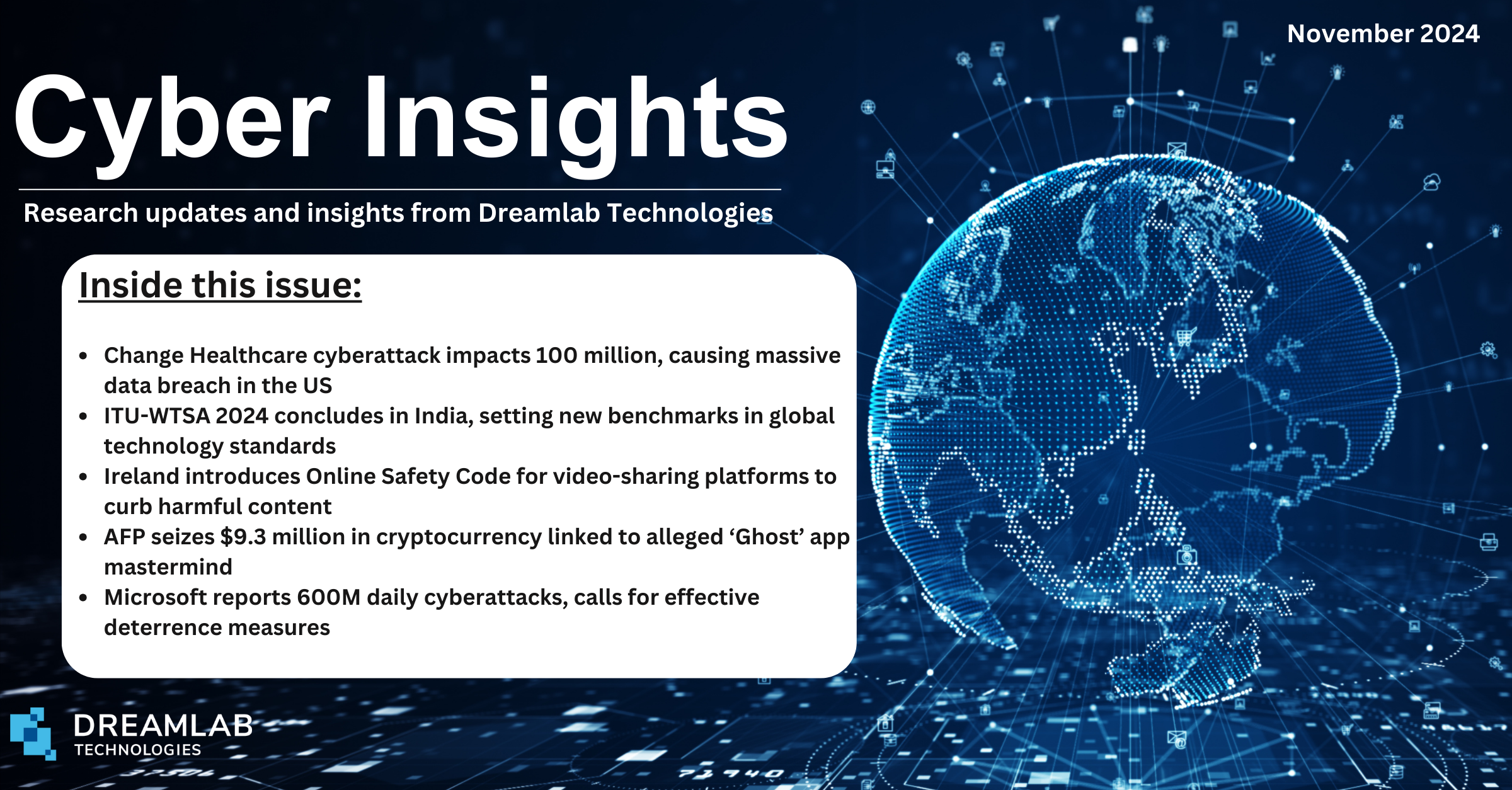
Dreamlab Technologies presents to you our brand new вАШCyber InsightsвАЩ newsletter вАУ an expert analysis of the latest developments in the cyber domain across the globe. The cyber world is a world full of opportunities, but unfortunately faces new and emerging threats every day. This newsletter contains insights and trends in cyber security and emerging technologies that will help you stay informed regarding the threats and challenges in today’s rapidly evolving digital world. It also comes with a brief analysis of the cyber security events from a geo-political perspective. In the evolving geo-political dynamics today, cyber-security is increasingly being prioritised by countries worldwide. Stronger cyber defence capabilities, higher investments in cyber security budgets and facilitating cyber policy dialogues are some of the new trends observed in the global geo-politics. The concise content in this paper provides a glimpse into this global scenario concerning the cyberspace. It is easy to read and can help promote awareness regarding best cyber security practices and safeguard our digital lives.
Inside this issue:
- Change Healthcare cyberattack impacts 100 million, causing massive data breach in the US
- ITU-WTSA 2024 concludes in India, setting new benchmarks in global technology standards
- Ireland introduces Online Safety Code for video-sharing platforms to curb harmful content
- AFP seizes $9.3 million in cryptocurrency linked to alleged вАШGhostвАЩ app mastermind
- Microsoft reports 600M daily cyberattacks, calls for effective deterrence measures
In this edition, we investigate the ransomware attack on Change Healthcare, a US health tech company, earlier this year, which resulted in a data breach affecting nearly 100 million individuals to date, as confirmed by its parent company, the UnitedHealth Group (UHG). The breach disclosed sensitive medical information of patients including their social security numbers and health records including diagnoses, medications, insurance and more. The updated details of the breach were recently published in the breach portal of the U.S. Department of Health and Human Services (HHS), making it one of the largest healthcare data breaches in the history of the US.
Next, we dive into this yearвАЩs International Telecommunication UnionвАЩs (ITU) World Telecommunication Standardization Assembly (WTSA-24) that was recently held in New Delhi, India. The Assembly, which is held every four years, concluded with revised guidelines and agreed on eight new resolutions that emphasised support for developing countries, which we study in detail.
Spanning Europe, we come across the new Online Safety Code for video-sharing platforms introduced by Ireland, to curb harmful online content. The Code, which is set to take effect next month, mandates platforms to prohibit the uploading and sharing of harmful content like promotion of self-harm, cyberbullying, incitement to violence or hatred, etc., holding them accountable for user safety. It urges platforms to adopt a safety-by-design approach and enforce content bans by acting on user reports, thus, reflecting a growing global tilt towards stringent online safety laws.
Across Oceania, we examine an ongoing operation named вАШOperation KrakenвАЩ by the Australian Federal Police (AFP), in which the alleged mastermind behind the вАШGhostвАЩ encrypted messaging app gets arrested, with a successful seizure of $9.3 million in cryptocurrency linked to him. The app, that was specifically designed for criminal activities, was dismantled through a specialised infiltration method in a coordinated global effort with law enforcement from nine countries, supported by Europol. The operation also resulted in numerous arrests, seizure of illicit drugs, firearms and weapons, recovery of millions in cash and in assets from organised crime groups. The incident highlighted the challenges posed by evolving encryption technologies that are rapidly adopted by organised crime groups, thus, indicating an urgent need for international collaboration and innovation to combat their criminal use.
And in Big Tech, Microsoft reports 600 million daily cyberattacks with increasing sophistication, from both cybercriminals and state-sponsored actors. It notes a troubling rise of tech scams by 400% since 2022 and ransomware attempts by 2.75 times year over year, with AI increasingly being used by threat actors to enhance their attacks. Microsoft calls for effective deterrence measures by denying intrusions and imposing consequences for violation of international norms through joint public and private sector efforts.


